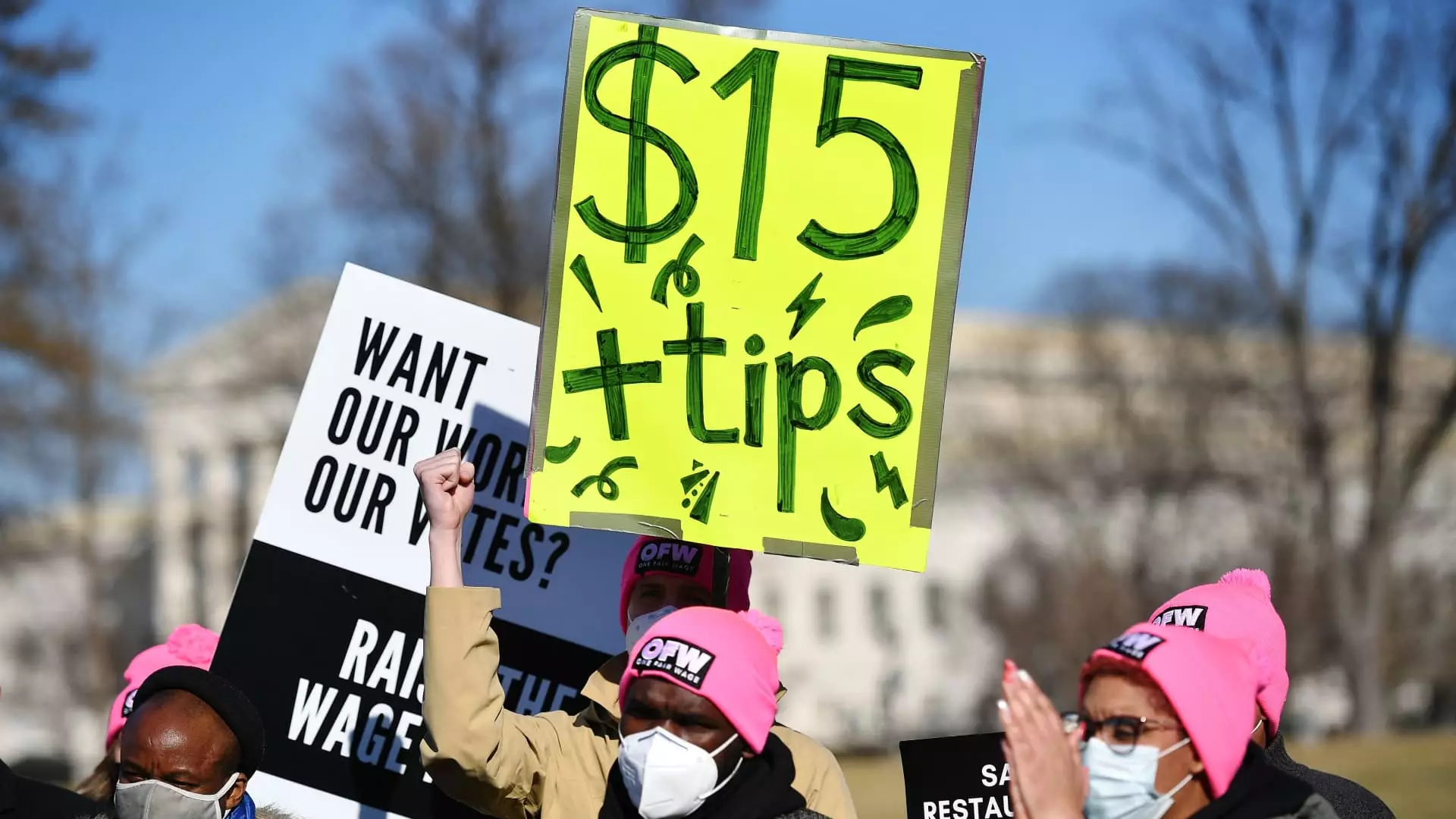Over 15 years have passed since the federal minimum wage was last increased, leaving it at a mere $7.25 per hour. While some states have chosen to set their own higher minimum wage rates, there are still 20 states where the wage remains at the federal level. This stagnation has sparked a debate on the need to raise the minimum wage to better support working families in America.
Democratic presidential nominee, Kamala Harris, has voiced her support for raising the minimum wage to improve the lives of working Americans. Although she has not specified the exact amount the minimum wage should be raised to, she has commended states that have set their rates at $15 per hour. Efforts by Congressional Democrats to raise the federal minimum wage to $15 per hour as part of a Covid relief package in 2021 were unsuccessful due to legislative constraints.
Former President Donald Trump raised concerns about the impact of raising the federal pay threshold on small businesses, fearing that higher wages would lead to job cuts. While some small business owners support increasing the minimum wage in their states, there are concerns about the financial strain it may place on their operations. The debate over the minimum wage often fails to consider the potential benefits of increased consumer buying power that comes with higher wages.
Advocates for raising the minimum wage argue that it would not only benefit low-wage workers but also stimulate economic growth. Holly Sklar from Business for a Fair Minimum Wage emphasizes the connection between higher wages and increased consumer spending, which in turn can boost businesses. Ben Zipperer from the Economic Policy Institute highlights the erosion of purchasing power caused by the lack of minimum wage increases over the years and the potential positive impact of raising the minimum wage to $15 per hour for millions of workers.
While some companies like Target and Walmart have taken the initiative to raise their minimum pay thresholds in response to market conditions, there is still a push for a national increase in the federal minimum wage. Advocates argue that raising the minimum wage can make it easier for businesses to attract and retain talent, ultimately benefitting both workers and employers.
The debate over raising the federal minimum wage is multifaceted, with political, economic, and social implications at play. While there are concerns about the impact on small businesses, advocates believe that increasing the minimum wage is essential for supporting low-wage workers and boosting consumer spending. The discussion surrounding the minimum wage highlights the complexities of labor policy and its significance in shaping the economic landscape for both workers and businesses.


Leave a Reply